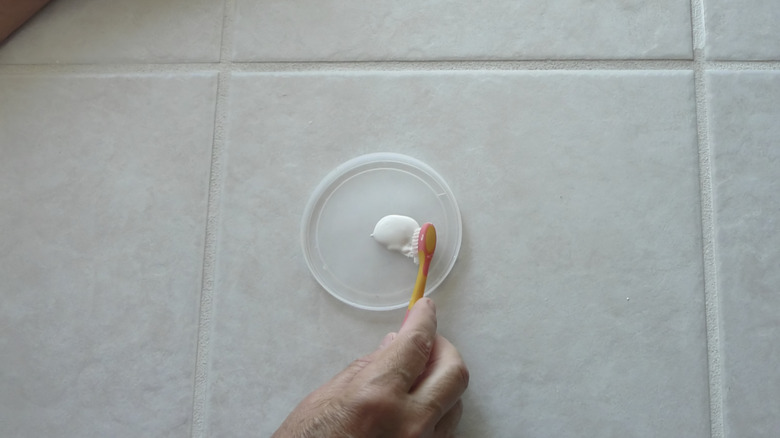Homemade Grout Sealer
It may look stunning after its first installation, but those tile floors are in for a lot of hard work. A grout sealer, although not needed for the integrity of your floors, can keep high traffic areas in good shape. Grout is porous and collects dirt rather easily. Spills, skid marks and oil from bare feet can exacerbate the grime in your grout. Knowing the best grout sealer for your needs is a solid first step in maintaining the integrity of your tile floors.
Grout is the cement-like mixture that is used to fill the gaps between tiles when they are being set. The grout helps bond the tiles, keeping them from moving out of place, and gets rid of cracks where dirt could gather. You can make homemade grout using a combination of cement and sand, but store-bought grouts work best. When you are looking for a homemade sealer to protect the grout, there are a couple of natural sealants that you can use.
Preparing the Grout and Choosing Sealers
Make sure that your grout is ready to be sealed. If it is new grout that you have just recently laid between the tiles, then you will need to wait for it to fully dry and cure. This usually takes at least two days. You should also be aware that no matter what type of sealer you use, it will probably slightly change the color of the grout, darkening it. If your grout is old, thoroughly clean it (you can use a homemade vinegar solution if you want) and let it dry before applying the sealant.
When it comes to choosing the sealer, you have several different choices. Mineral oil and beeswax are both very popular ingredients, but you will typically need a base to mix them in. Boiled linseed oil is the most popular base, and turpentine is often used to thin it a little. You do not need to use all of these ingredients. The beeswax will need to be melted before it is added to the mixture. You will not need much wax or mineral oil; these should usually constitute one-fifth or one-fourth of the mixture, at the most.
Homemade Sealing Procedure
After the grout is dry and ready to seal, apply the sealer with a sponge, liberally, and let it soak in fully, which usually takes an hour or so. After it soaks, wipe the area with spare rags, and wait for the sealer to dry, which usually takes about a day. After it has dried, add a second coat. You can put on a third coat if you want, but inspect the grout carefully to be sure it is necessary.
These grout sealers are best used on countertops. Floor grout sealers often need to create a waterproof seal, which commercial products are much better at forming. If you use a homemade sealer on the floors, be prepared to reapply at intervals to help maintain a good seal.
